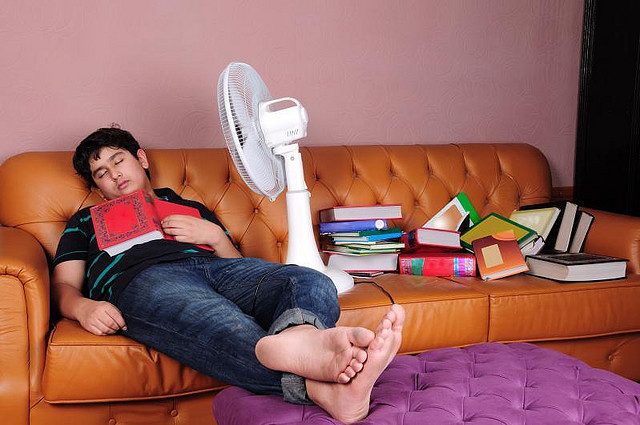Teenagers are often viewed as lazy and moody, sleeping in late and being annoyed at their parents all the time. Adolescence is often a rebellious age, but could there be another factor at hand?
Research on sleep could provide some explanation for adolescent behaviour. The exact beneficial mechanisms of sleep are unclear, but it is widely agreed that it’s very important. Inadequate sleep can lead to various health problems such as disturbed metabolism, decreased cognitive ability and changes in mood. Everyone has heard the guidelines advising 8 hours of sleep a night, but actually the recommended number of hours varies somewhat by age. As you get older, you require less sleep. Teenagers actually need from 8 to 10 hours of sleep a night, according to the National Sleep Foundation. This is not surprising, as the the brain continues to develop until early adulthood.
It’s not just the duration of sleep that matters, however. When you sleep is also important. The human body operates on an approximately 24 hour time-scale; this is referred to as the circadian rhythm or “body-clock”. This rhythm is determined by sunlight, which is why you are awake during the day and sleep at night. This is also the reason for jetlag – it’s light and dark at the “wrong” times. However, the time a person naturally feels sleepy and alert varies between individuals. Some people feel alert enough to go to the gym at 7am, others can easily stay awake until the early hours of the morning, or they can be somewhere in between. Teenagers tend to have a delayed body-clock compared to other age groups, so their natural tendency is to go to bed later and wake up later. On school nights, when teenagers need to wake up early the next morning, this means that they get less sleep. This is likely to lead to poorer performance at school, acting “sluggish” during the day, and having a lie-in at the weekend. Studies show that “evening” students perform worse at school than “morning” students. “Morning” people tend to feel more alert and energetic in the morning, winding down as the day progresses, while “evening” people feel best later in the day.
It seems that teenagers are suffering from “social jetlag” – a discrepancy between socially required sleep times and sleep onset defined by the body’s circadian rhythm. Research shows that starting the school day later helps students with learning and exam performance and also increases their mood 1 2. It’s a simple solution to deal with their late-running body clock. Hopefully, one day, society will catch up!
Edited by Debbie Nicol
References
- Van der Vinne V et al. Timing of examinations affects school performance differently in early and late chronotypes. Journal of biological rhythms. 2015; 30(1): 53–60.
- Díaz-Morales JF, Escribano C & Jankowski KS. Chronotype and time-of-day effects on mood during school day. Chronobiology international. 2015; 32(1): 37–42.

